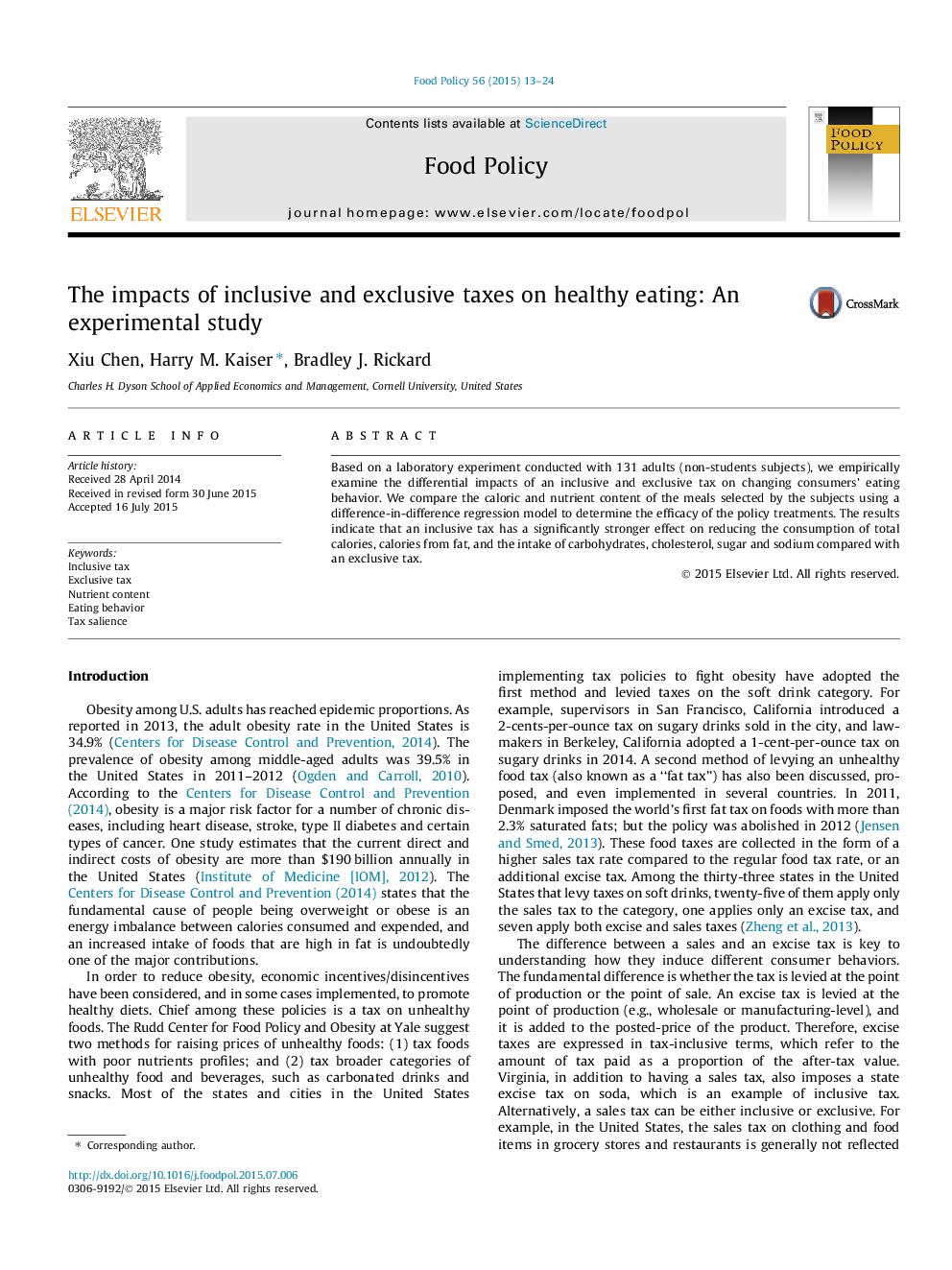| Article ID | Journal | Published Year | Pages | File Type |
|---|---|---|---|---|
| 5070310 | Food Policy | 2015 | 12 Pages |
Abstract
Based on a laboratory experiment conducted with 131 adults (non-students subjects), we empirically examine the differential impacts of an inclusive and exclusive tax on changing consumers' eating behavior. We compare the caloric and nutrient content of the meals selected by the subjects using a difference-in-difference regression model to determine the efficacy of the policy treatments. The results indicate that an inclusive tax has a significantly stronger effect on reducing the consumption of total calories, calories from fat, and the intake of carbohydrates, cholesterol, sugar and sodium compared with an exclusive tax.
Related Topics
Life Sciences
Agricultural and Biological Sciences
Food Science
Authors
Xiu Chen, Harry M. Kaiser, Bradley J. Rickard,
